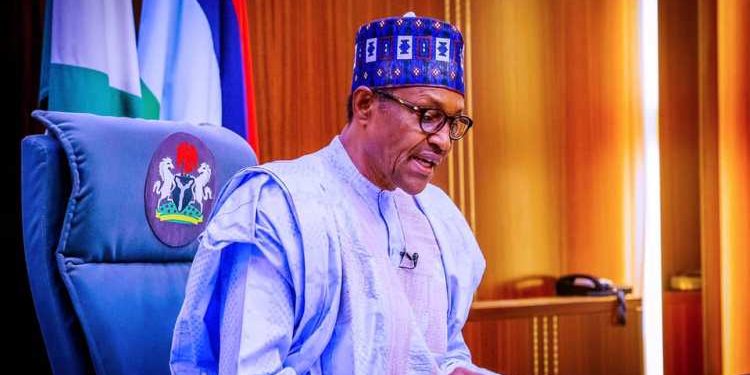
Nigeria’s debt profile, yesterday, hit N35.48trillion as President Muhammadu Buhari sought approval from National Assembly for an additional loan request of $6.183 billion (about N2.343 trillion), provided in the New External Borrowing in the 2021 Appropriation Act, to part-finance the budget deficit of N5.602 trillion.
Earlier in the year, Buhari made a similar request of $1.5 billion loan and another €990 million, respectively.
According to the Debt Management Office, as of December 2020, Nigeria’s public debt was N32.9 trillion, or $86.3 billion, of which N12.7 trillion ($33.3 billion) is external debt. Adding the previous N32.9 trillion debt to the new N2.343trillion loan would amount to a debt of N35.243trillion.
About N20.2 trillion ($53 billion) represents domestic debt, including loans by banks. Of this amount, the federal government owes N16 trillion ($42 billion), while the balance was loans by State governments and the Federal Capital Territory.
Of the external debt, 9.7 percent or N1.2 trillion ($3.3 billion) was owed to the Export-Import Bank of China, a state-owned and funded bank that supports China’s foreign trade and investment.
In a letter addressed to the Senate, Buhari requested for a Resolution of the National Assembly (NASS) to raise N2,343,387,942,848.00 (about USD 6,183,081,643.40 at the Budget Exchange Rate of USD1.00/N379).
He said the request was in line with the provisions of Sections 21(1) and 27(1) of the Debt Management Office (Establishment, Etc.) Act, 2003 (DMO Act).
Section 21(1) of the DMO states that “no external loan shall be approved or obtained by the minister, unless its terms and conditions shall have been laid before the National Assembly and approved by its resolution.
Section 27(1) states that “the National Assembly may, by a resolution, approve, from time to time, standard terms and conditions for the negotiation and acceptance of external loans and issuance of guarantees.”
While the president, in a letter to Speaker Femi Gbajabiamila, said the new external borrowing is to part-finance the N5.602 trillion deficit in the 2021 budget.
He said the “N2.343 trillion New External Borrowing in the 2021 Appropriation Act will be used to fund specific Capital Projects in the budget.
“This includes projects from priority sectors of the economy, namely: Power, Transportation, Agriculture and Rural Development, Education, Health, provision of Counterpart Funding for Multilateral and Bilateral Projects, Defence and Water Resources.”
Buhari said the wish of the Federal Government is to bring to the attention of the Senate president that the plan is to raise $6.183 billion from a combination of sources; namely, multilateral and bilateral lenders, as well as from the International Capital Market (ICM) through the issuance of Eurobonds.
“From recent trends in the ICM, it is now possible for Nigeria to raise funds in the ICM and this explains why we are proposing that the New External Borrowing in the 2021 Appropriation Act, should include issuing Eurobonds in the ICM. We estimate that Nigeria may be able to raise USD 3 billion or more, but not more than $6.183 billion (the amount provided in the 2021 Appropriation Act) in a combination of tenors between 5 — 30 years; the outcome would, however, be determined when Nigeria approaches the market.”
Buhari said the proceeds of the $6.183 billion (N2.343 trillion) New External Borrowing in the 2021 Appropriation Act) will be used to fund specific capital projects in the budget.
He said the projects include those from priority sectors of the economy; namely, Power, Transportation, Agriculture and Rural Development, Education, Health, Provision of Counterpart Funding for Multilateral and Bilateral projects, Defence and Water Resources.
President Buhari explained that “the 2021 Appropriation Act provides for N4,686,775,885,696.00 as New Borrowings (item No. 328) to part-finance the 2021 Fiscal Deficit, of which 50% or N2,343,387,942,848.00 (about $6,183,081 ,643.40 at the Budget Exchange Rate of $1.00/N379) is specified as New External Borrowing.
He added that “the plan is to raise $6.183 billion from a combination of sources; namely: multilateral and bilateral lenders, as well as from the International Capital Market (ICM) through the issuance of Eurobonds.
“From recent trends in the ICM, it is now possible for Nigeria to raise funds in the ICM and this explains why we are proposing that the New External Borrowing in the 2021 Appropriation Act, should include issuing Eurobonds in the ICM.
“We estimate that Nigeria may be able to raise $3 billion or more, but not more than $6.183 billion (the amount provided in the 2021 Appropriation Act) in a combination of tenors between 5-30 years; the outcome would, however, be determined when Nigeria approaches the market.”
Source: SUn News




















































